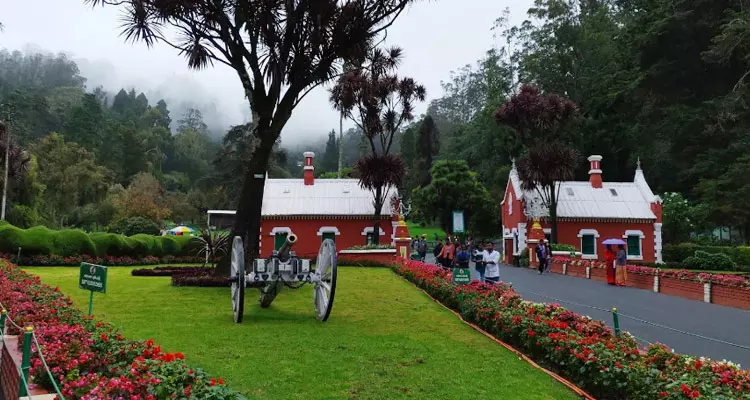
Madras HC orders e-pass system to enter Ooty, Kodai; how will it work?
Court has given directives on how e-pass system can be implemented in Nilgiris and Kodaikanal to curb 20,000+ vehicles entering the 2 hill stations in summer

In a bid to streamline heavy vehicular traffic entering Nilgiris and Kodaikanal during summer, the Madras high court has made e-pass mandatory for non-residents of these two scenic hill stations.
Filling up an online form
Visitors to these sought after hill stations will probably have to fill up an online form and generate an e-pass. Vehicles with e-pass only will be allowed to enter, said the court, who has asked district collectors of Nilgiris and Dindigul to develop such a system. Kodaikanal is located in Dindigul district.
Pilot test from May 7 to June 30
The possession of such e-passes can be properly checked at the entry points without fail. Such a system can be developed and implemented with effect from May 7, 2024 and shall be in vogue on a pilot/test basis up to June 30, 2024, the bench added.
New system to be widely advertised
There should be adequate publicity about the new system on the website/mobile app which were going to be developed. Advertisements can be issued nation-wide and more specifically in the regional newspapers of the neighbouring states - Kerala, Karnataka and Andhra Pradesh, said the division bench comprising Justices N Sathish Kumar and D Bharatha Chakravarthy. This order was given on Monday (April 29) while passing interim orders in a case relating to fixation of carrying capacity in respect of the Nilgiris and Dindigul districts.
Exemption for vehicles of local residents
The vehicles of local residents, commercial vehicles regularly carrying agricultural products can be exempted by issuing an appropriate notification, the bench suggested.
It has to be worked out if the e-passes either have to be valid for one entry or for multiple entries, there must be a related provision, said the bench.
Why court decided to regulate vehicle entry?
A "whopping" 20,011 vehicles enter the Nilgiris every day, which includes 11,509 cars and 6,524 two-wheelers on an average during the peak season, the court said, adding, "it can be seen that the situation is alarming."
"There can be absolutely no place even for movement of traffic and it is affecting everyone, the residents, the tourists, the visitors etc., without exception. More specifically, the local residents can not move even for their regular livelihood including for medical emergency and their very right to life is affected; the tourists also cannot reach their destinations and it spoils their very experience... the environment is the worst affected," the court said.
Meddling with elephant corridors
The roads were carrying beyond their capacity. It can also be seen that all these routes were "meddling/interfering with the elephant corridors." And in view of traffic jams, vehicles are stranded in the roads cutting across forests and the animals are worst affected. It causes irreparable damage to the environment, the bench noted.
Traffic management
The court also directed Nilgiris district collector to also ensure the traffic management for the current season, particularly, consider stopping tourists vehicles entering via Kalhatti Ghat Road. This is because it is said to be one of the primary reasons for the traffic congestion as well as detrimental to the environment.
The Collector shall, however exempt the vehicles of the local residents, the bench added and posted to July 5, further hearing of the case.
(With inputs from agencies)

